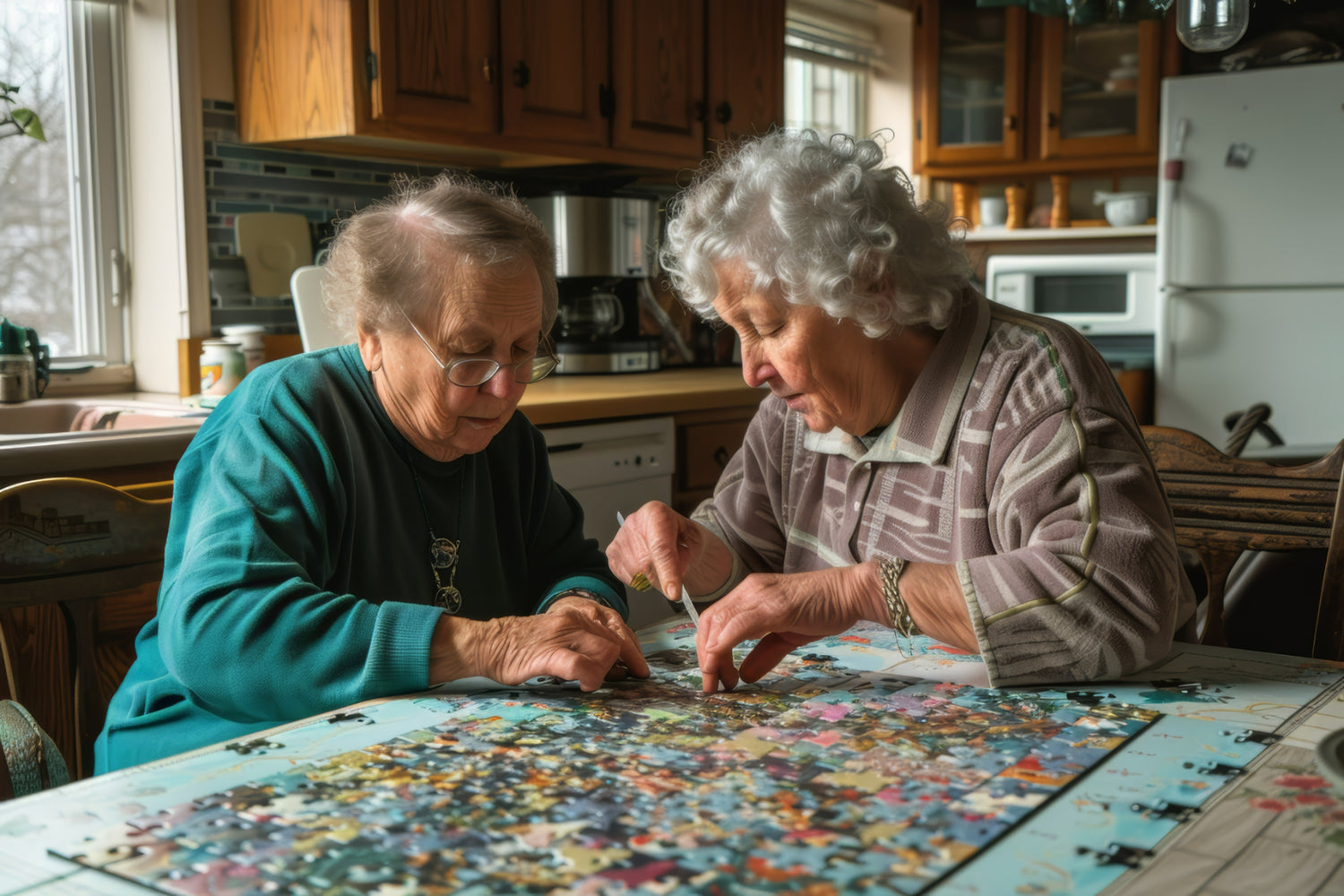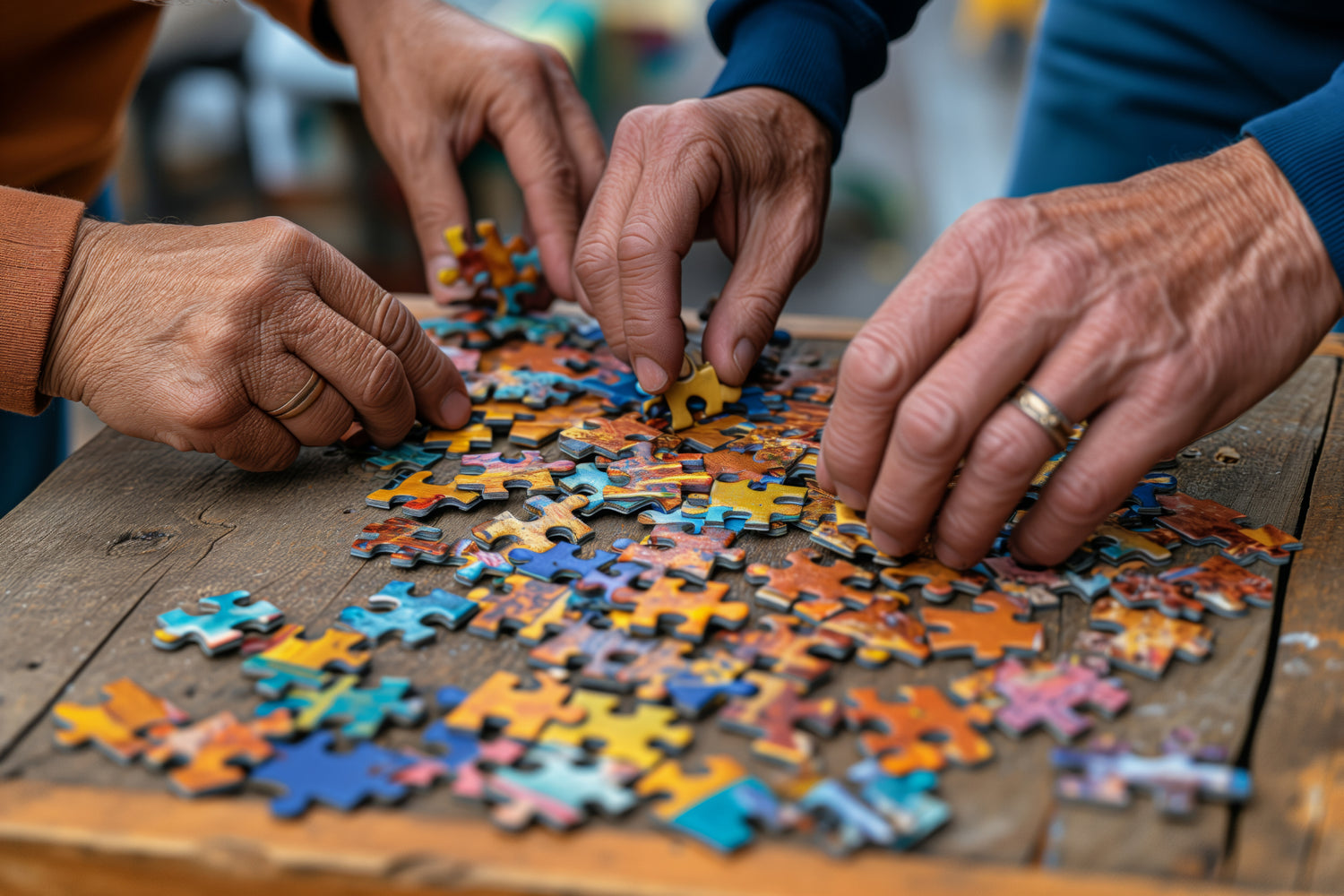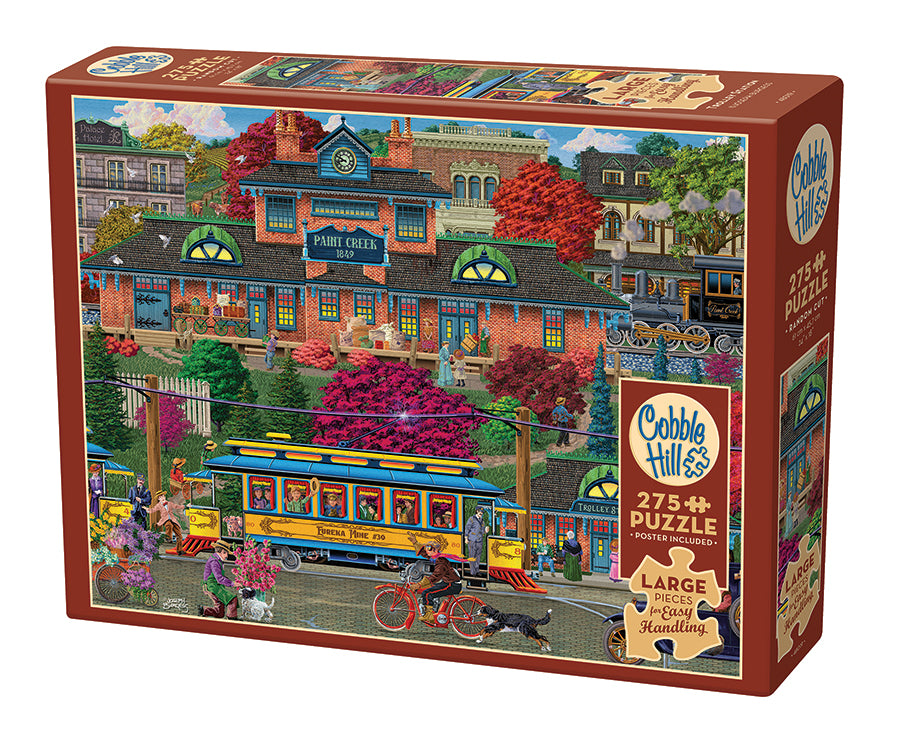
Puzzles For Dementia Patients
Engaging in puzzle-solving activities can be helpful in stimulating and exercising the brain. The goal is to maintain cognitive function and slow down cognitive decline. Puzzles require attention, concentration and problem-solving skills which when completed can boost an individual's self-esteem and confidence.

The Benefits of Games for Individuals with Dementia
Puzzles have many benefits for individuals with dementia. Working on a jigsaw puzzle can help improve cognitive function and slow down cognitive decline. It can also increase socialization and enhance visual and spatial skills. Completing a puzzle can help an individual's self-esteem and confidence and can be helpful in promoting a more positive emotional state. You can explore dementia puzzle collections and other dementia products at our Alzheimer's store.
Choose Our Dementia Puzzles
-
35 Piece Tray Puzzle (Turtle / Horse/ Owl themed puzzles)
Large Pieces for Easy Handling.
Each Tray Puzzle has a picture for where each puzzle piece should be placed on the tray for easy assembly.
Regular price $12.99Regular priceUnit price per -
275 Piece Easy Handle Puzzle (Horses / Trolley Station / Springtime)
Large Pieces for Easy Handling.
Regular price $18.99Regular priceUnit price per -
1000 Piece Puzzle (Donuts / Farm Country / Bears)
Regular price $21.99Regular priceUnit price per
FAQs
Your Questions Answered
What types of puzzles are best for people with dementia?
Our puzzles are specially designed with larger pieces and distinct colors to enhance usability. We offer jigsaw puzzles with fewer pieces and clear images, as well as themed puzzles that can evoke pleasant memories and stimulate conversation.
How do puzzles benefit people with dementia?
Puzzles help improve hand-eye coordination, enhance problem-solving skills, and can slow cognitive decline by keeping the mind active. They also provide a sense of achievement and can be a calming activity for individuals experiencing anxiety or restlessness.
Are puzzles suitable for all stages of dementia?
Yes, we provide puzzles that are suitable for various stages of dementia. For early stages, more complex puzzles can be appropriate, while later stages may require simpler designs with fewer pieces and more obvious imagery to avoid frustration.
How often should someone with dementia engage with puzzles?
Regular engagement is beneficial, though the frequency can depend on the individual's interest and cognitive fatigue. Starting with short sessions and gradually increasing as tolerated can help maintain engagement without causing overwhelm.





